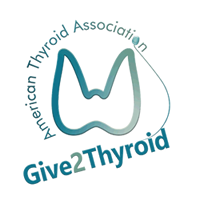BACKGROUND
Different types of laboratory tests are available for evaluation of thyroid disorders. These tests are used mainly to measure either hormones (like TSH, T4 and T3) or thyroid antibodies. Extensive clinical studies have been done to guide clinicians to choose the most effective test in every clinical situation.
Reverse T3 (rT3) is not one of the primary hormones produced by thyroid gland. It is mostly produced inside the cells in other tissues from the breakdown of T4. The normal pathway is that T4 is broken down to T3, which is the active hormone. T4 can also be broken down to rT3, which is an inactive hormone. The production of T3 and rT3 is exactly opposite: the higher the T3 level, the lower the rT3 level; the lower the T3 level, the higher the rT3 level. Because of this relationship, and the fact that rT3 is inactive, most clinicians do not use measurement of rT3 for assessing a patient for hypothyroidism or hyperthyroidism. Still, some providers continue to order rT3 in the assessment of thyroid function. This study was done to identify the ordering pattern of serum rT3 by clinicians.
THE FULL ARTICLE TITLE:
Schmidt RL et al. Does reverse triiodothyronine testing have clinical utility? An analysis of practice variation based on order data from a national reference laboratory. Thyroid 2018 Jul; 28(7): 842-848.
SUMMARY OF THE STUDY
The data from the National Reference Laboratory was used to conduct this study. The authors reviewed all the thyroid related tests that had been ordered from November 2015 to November 2016. They studied the records to find out the ordering pattern of the tests based on hospital types (for example, community versus academic hospitals) and providers (type of specialty). They also reviewed the published medical articles about rT3 and did a Google search to identify the information available in internet to public about rT3.




